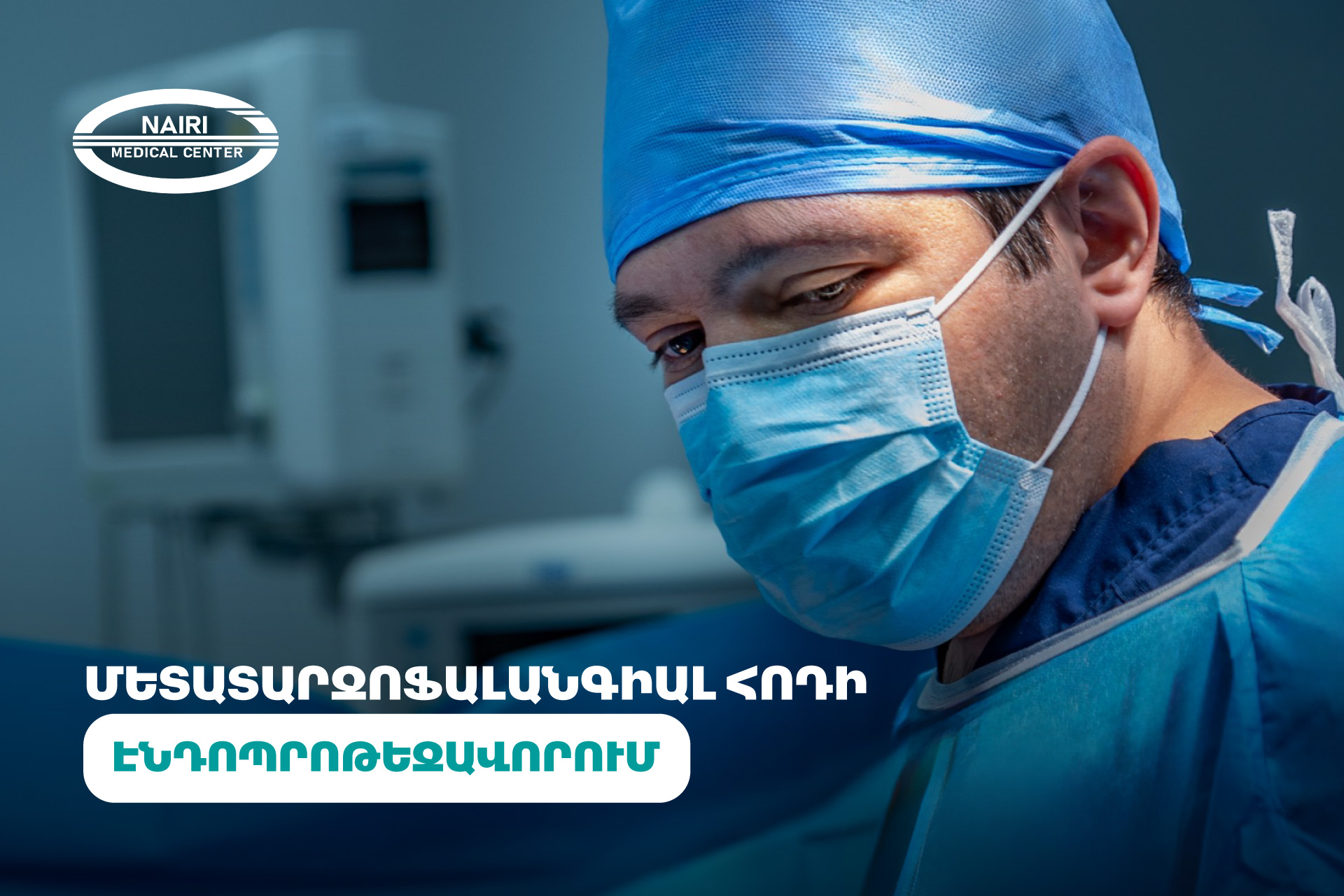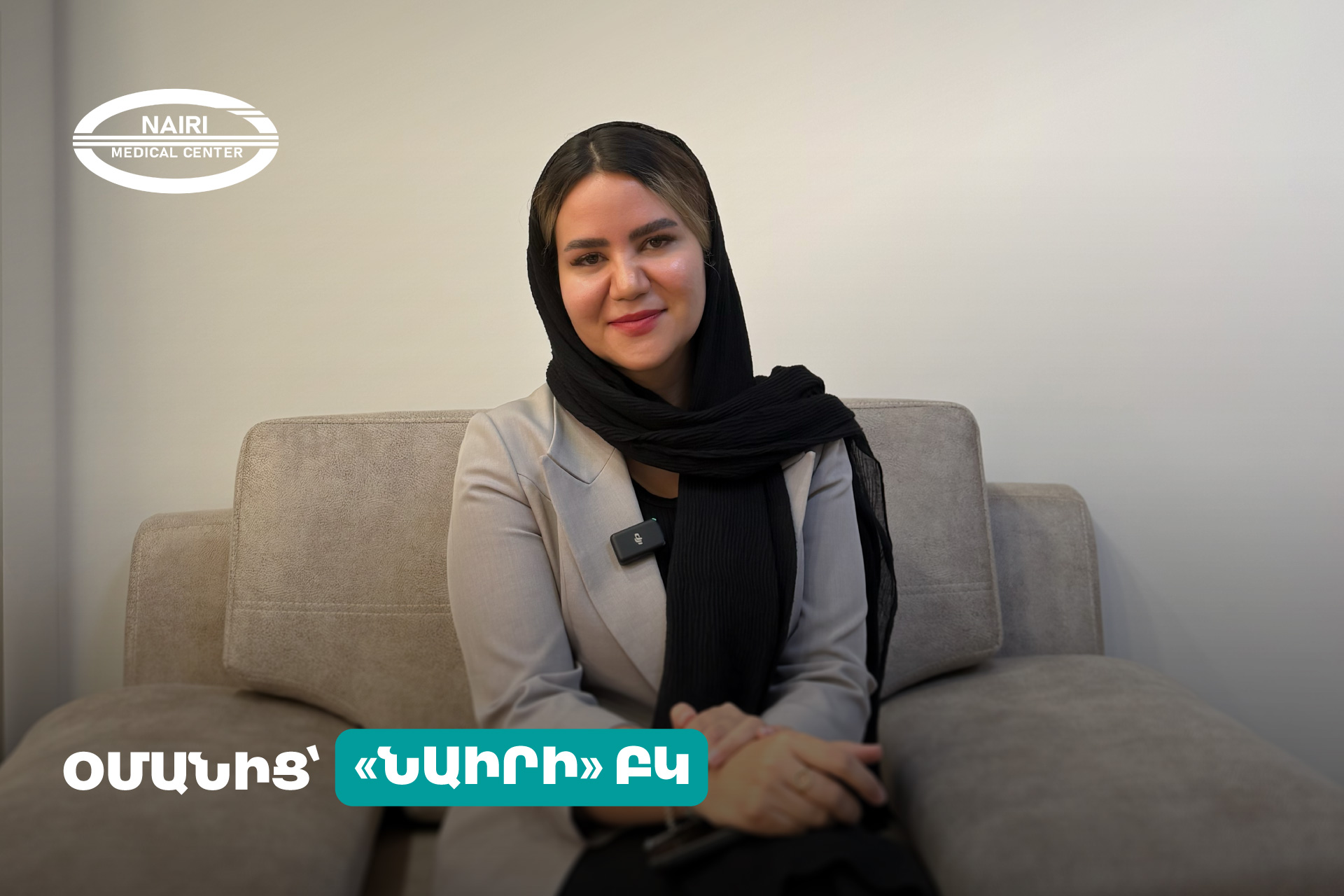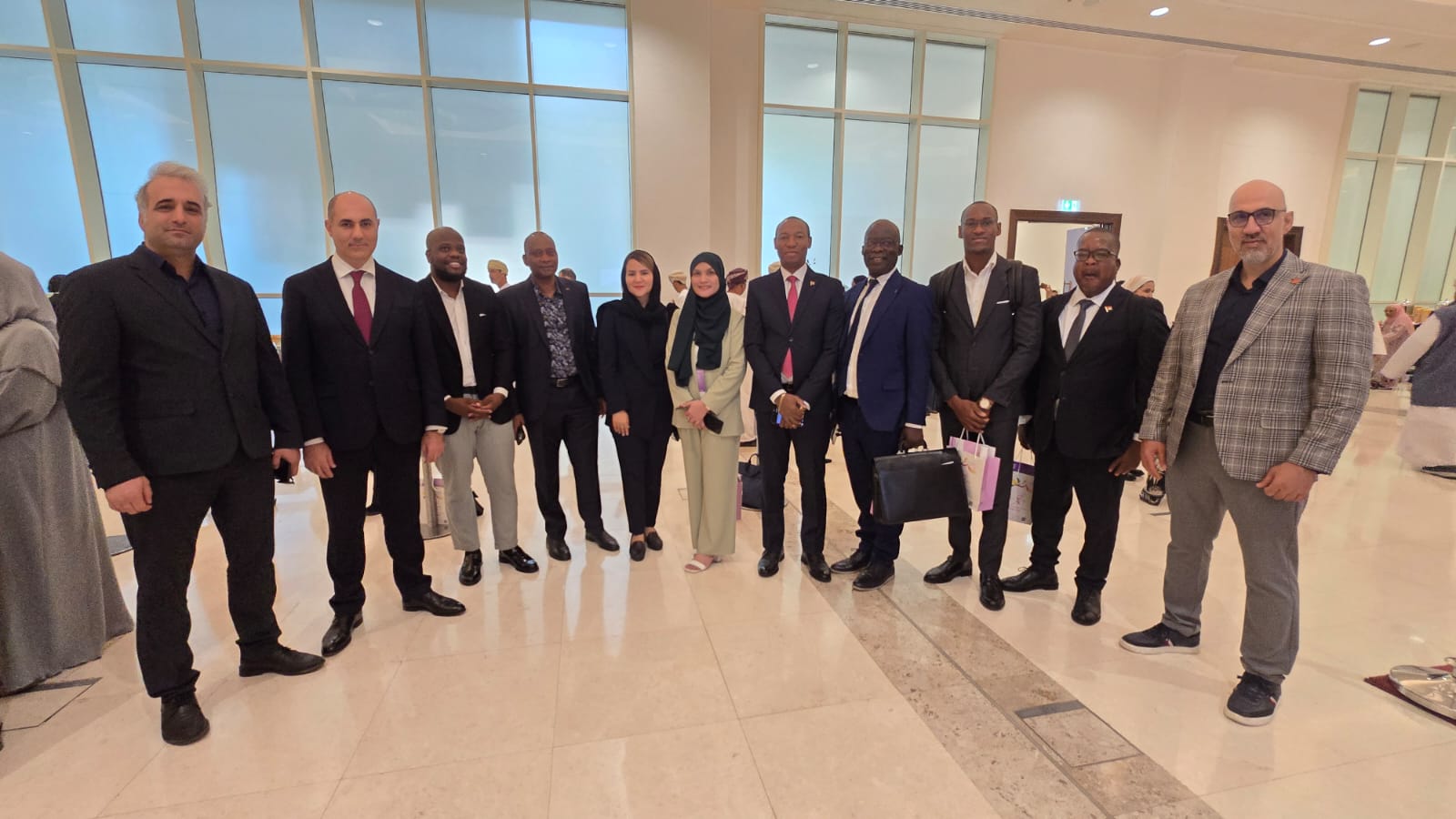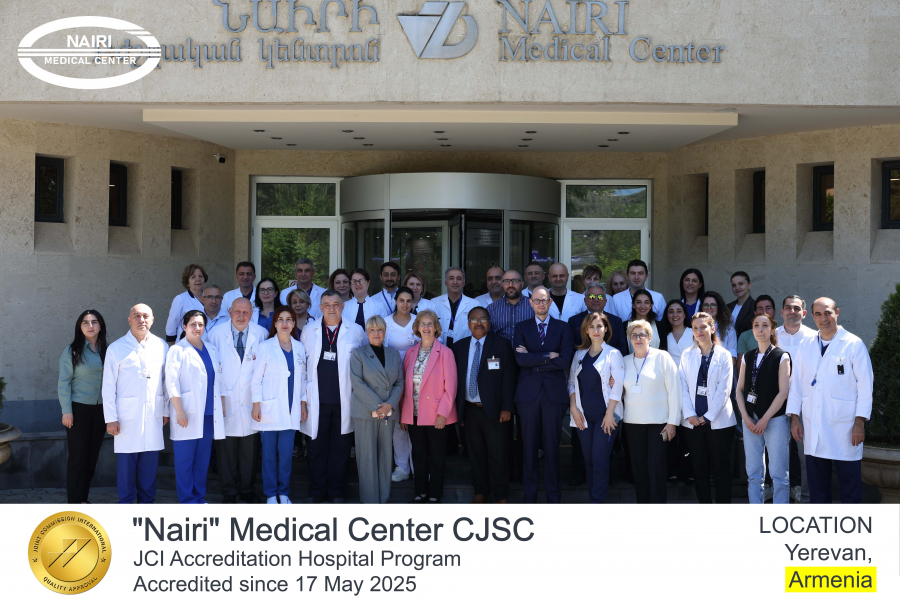Endoscopy services at ''Nairi'' MC. Interview with Tos Sargsyan
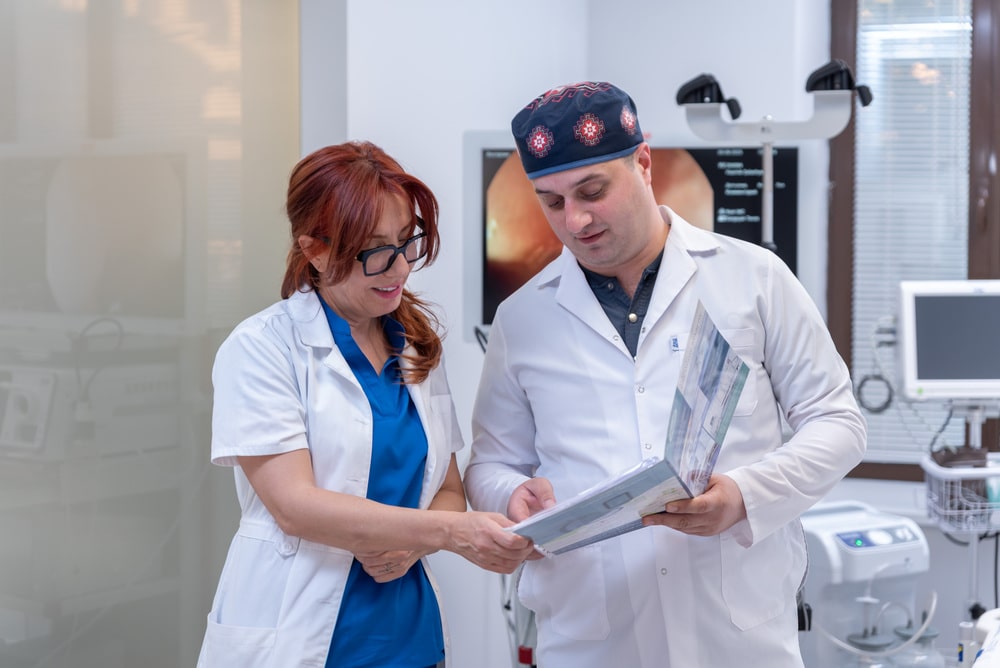
Doctors
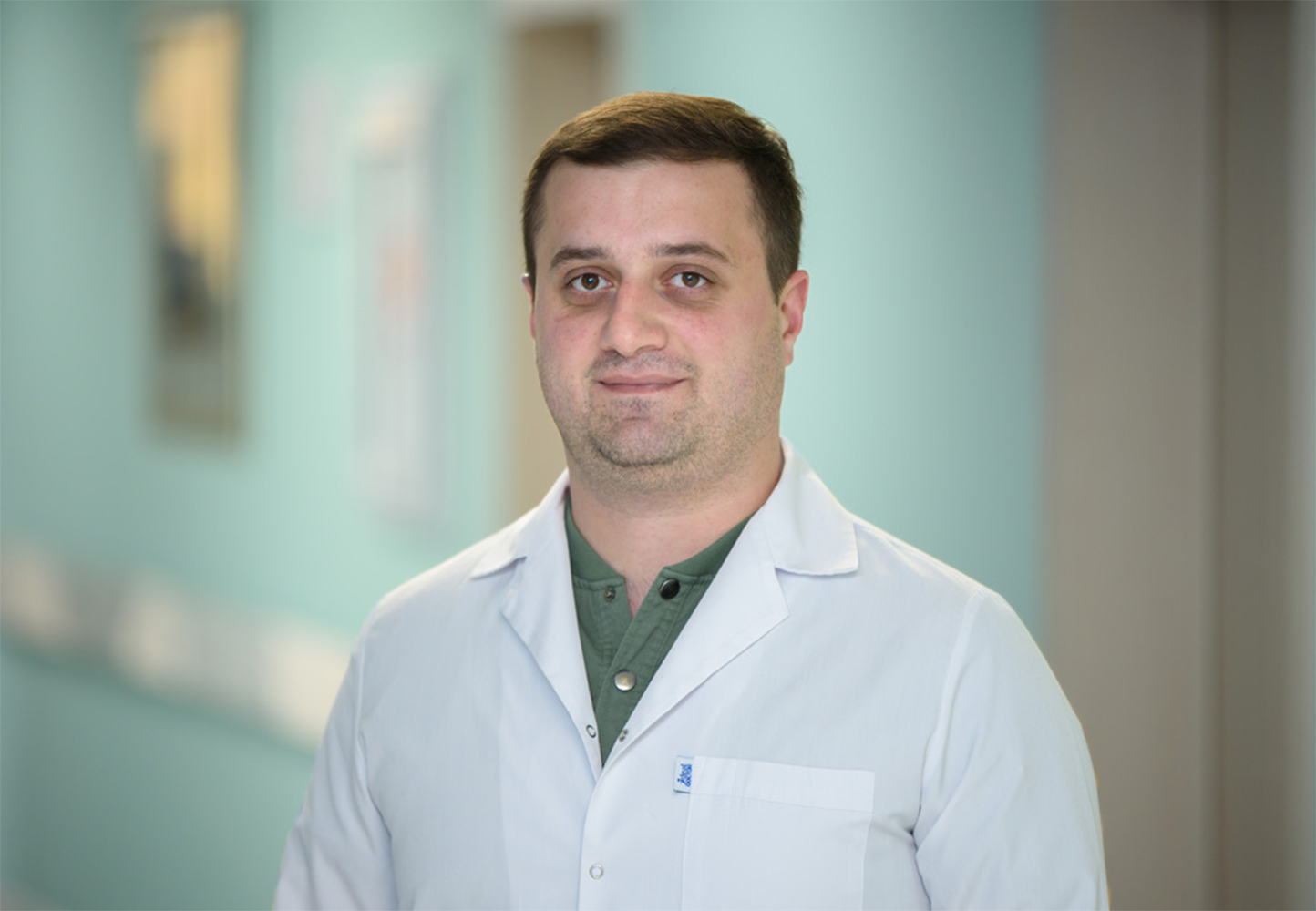 Tevos H. Sargsyan
Tevos H. Sargsyan
- What does the endoscopy service involve?
- ''Nairi'' Medical Center has an endoscopic diagnosis and treatment service, which involves gastroscopy and colonoscopy. In general, endoscopy also includes duodenoscopy and other examinations. However, the above mentioned two and some therapeutic interventions related to them (removal of polyps of different sizes and amount, stenting of the intestines, etc.) are mainly used.
In case if it is necessary biopsies are performed, which is the main advantage of endoscopic procedure. If a suspicious lesion is found, a biopsy is performed immediately during the same examination followed by a histological examination to determine the type of tumor. Depending on the result of the examination a proper patient management way is chosen.
- What is gastroscopy? In what cases is it performed?
- During gastroscopy the instrument, on the head of which is attached an HD image camera, allows you to see the condition of mucous membrane of the esophagus, stomach and duodenum and detect existing tumors at early stages. With this information to assess the condition of the mucous membrane, this test is considered irreplaceable.
In addition to the diagnostic examination, with the help of gastroscopy, therapeutic interventions are also performed with intravenous anesthesia. Those interventions include ligation of varicose veins of the esophagus, stenting of the esophagus and duodenum (in case of burns, tumors), placement of intragastric balloons in the stomach , the act of stopping acute bleeding, removal of foreign bodies, etc.
Endoscopic interventions are performed due to the team work of surgeon, gastroenterologist, anesthesiologist and other specialists if necessary. Before the procedure, the management strategy and sequence of actions are determined.
To determination of Helicobacter pylori in the stomach is very important, that is also can be performed by gastroscopy with the help of a rapid urease test, which is one of the most sensitive, specific and informative methods.
- What are the indications for gastroscopy?
- There are absolute and relative indications for gastroscopy. There are cases when the intervention should be performed immediately, especially in the presence of the vomit with the signs of blood and coffee color discharges, and with the traces of fresh or coagulated blood in the stool.
Iron deficiency anemia and rapid weight loss for unknown reasons are also absolute indications. Other Indications include the presence of prolonged burning sensation, pain in the stomach, mainly being hungry or after eating. In the case of burning, age is important, because over the time it causes esophagitis, sometimes with complications. Prolonged burning might cause Barrett's esophagus which is considered a precancerous condition.
- How do patients apply for the examination?
- The diagnostic process involves a certain sequence of actions. The patient should first consult a treating doctor, gastroenterologist. After listening to the patient's complaints, an examination plan is developed (gastroscopy, abdominal ultrasound, X-ray contrast examination of the gastrointestinal tract (achalasia, diffuse esophagospasm, in diseases it is sometimes more informative than endoscopy, because in these cases it is more important to clarify the contraction function, rather than the mucus membrane condition). Afterwards a treatment strategy is developed.
- How to get prepared for the examination?
- The day before the gastroscopy, it is forbidden to eat from 20:00 in the evening, but drinking water is permissible. It is also forbidden to eat, drink, smoke, chew gum or take any medicine before the gastroscopy on the day of the examination.
The information of colonoscopy is a direct comparison with the degree of cleanliness of the intestines: the cleaner the intestines, it is less likely to miss something. There are special medications that the patient must take the day before the examination to cleanse the bowels.
- Is there a need for anesthesia?
- At ‘’Nairi’’ Medical Center endoscopic examinations are performed both under general anesthesia and without anesthesia.
- How long does the examination last?
The average duration of gastroscopy is 2-5 minutes. It takes 5 minutes when a biopsy is needed.
Colonoscopy requires an individual approach depending on the length and coils of the bowel and it takes 10-40 minutes. The more detailed the intestines are examined, the more effective the further strategy. One of the ways to assess the quality of performance is the period of excretion of the instrument from the intestines, the degree of bowel cleansing.
Patients do not spend an inpatient day at the clinic even after being under general anesthesia. They stay under the doctor's supervision for 15-20 minutes after the examination.
- What kind of new methods are used, and how availability they are?
- At ‘’Nairi’’ Medical Center capsule endoscopy is performed, its advantage is the examination of the small intestine, which is not possible with the traditional method. The patient swallows a small capsule, which passes from the mouth to the rectum taking pictures of mucous membranes up to the rectum and anus. In fact, it provides HD quality pictures of the entire digestive system.
- Which are the advantages and disadvantages of the method?
The advantage is that the patient does not feel any discomfort during the whole process. The method makes it possible to detect pathologies for diagnostic purposes, especially of the small intestine.
The disadvantage of this method is that in case if a tumor is found, subsequently a gastroscopy or colonoscopy should be performed for biopsy.


